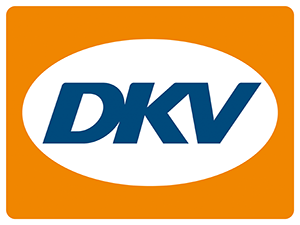CSRD reporting made easy: Instant fleet emission data with the new DKV Mobility Carbon Monitor

• New service includes annual fleet emissions report for CSRD-compliant sustainability reporting
• Emissions are reliably provided on a per-country basis and along the entire fuel life cycle (Well-to-Wheel)
DKV Mobility, a leading platform for international mobility services, introduces the DKV Mobility Carbon Monitor, allowing companies to reliably analyze and document the emissions of their vehicle fleets. The new service makes carbon reporting of fleet emissions in line with the Corporate Sustainability Reporting Directive (CSRD) easier than ever. The EU directive requires an increasing number of companies to report on the impact of their business activities on the environment, including the detailed disclosure of their corporate CO2e footprint. This is particularly relevant for freight haulers and companies with vehicle fleets, who must collect reliable data on their own fleet's emissions each year in accordance with the requirements of the CSRD.
The DKV Mobility Carbon Monitor includes an annual CO2e report with a detailed overview of fleet emissions and a methodology report describing the underlying data and calculation logic. Companies can use this report to meet their reporting requirements and for the auditing process. For all transactions processed through the DKV Mobility platform, the CO2e emissions incurred are displayed – regardless of the fuel or electricity product consumed. The emissions for each refueling or charging process are automatically calculated on a per-country basis, which is particularly relevant for companies that operate across borders. In accordance with CSRD requirements, the DKV Mobility Carbon Monitor records emissions throughout the entire fuel life cycle – from energy generation to vehicle operation (Well-to-Wheel).
“Whether you are a large corporation, a medium-sized company or a small business, the requirements for sustainability reporting are increasing and present many companies with major challenges because they do not have the necessary resources to reliably report their fleet emissions,” says Markus Präßl, Managing Director of Sales & Customer Success at DKV Mobility. “Companies that have reliable data on the emissions of their own vehicle fleet will have a decisive competitive advantage on the market in the coming years. With the DKV Mobility Carbon Monitor, we are providing our customers with a practical tool for reporting their own fleet emissions to become a frontrunner within their industry.”
In addition to the annual CO2e report, the DKV Mobility Carbon Monitor offers fleet and sustainability managers the option to access and export detailed information on the CO2e emissions caused by each individual refueling or charging process.The DKV Mobility Carbon Monitor is part of the DKV Analytics Premium package, which is available in the DKV Mobility digital customer portal.
Even if smaller companies are not yet affected by the new reporting obligations, business partners may request information on emissions, e.g. when purchasing goods or services. This is because companies covered by the CSRD must report on their CO2e emissions in the value chain according to strictly defined European Sustainability Reporting Standards (ESRS), which also includes purchased logistics services.
The EU's CSRD came into force on January 5, 2023, replacing the previous Non-Financial Reporting Directive (NRFD) and significantly expanding its requirements. The aim of the CSRD is to increase the accountability of European companies with regard to sustainability aspects and to introduce binding reporting standards at EU level. This step brings sustainability reporting and financial reporting closer together.
* CO2 equivalent: unit of measurement for comparing and quantifying the effects of various greenhouse gases on climate change. CO2e summarizes various greenhouse gases in a single value based on their respective contribution to the greenhouse effect compared to carbon dioxide (CO2).
